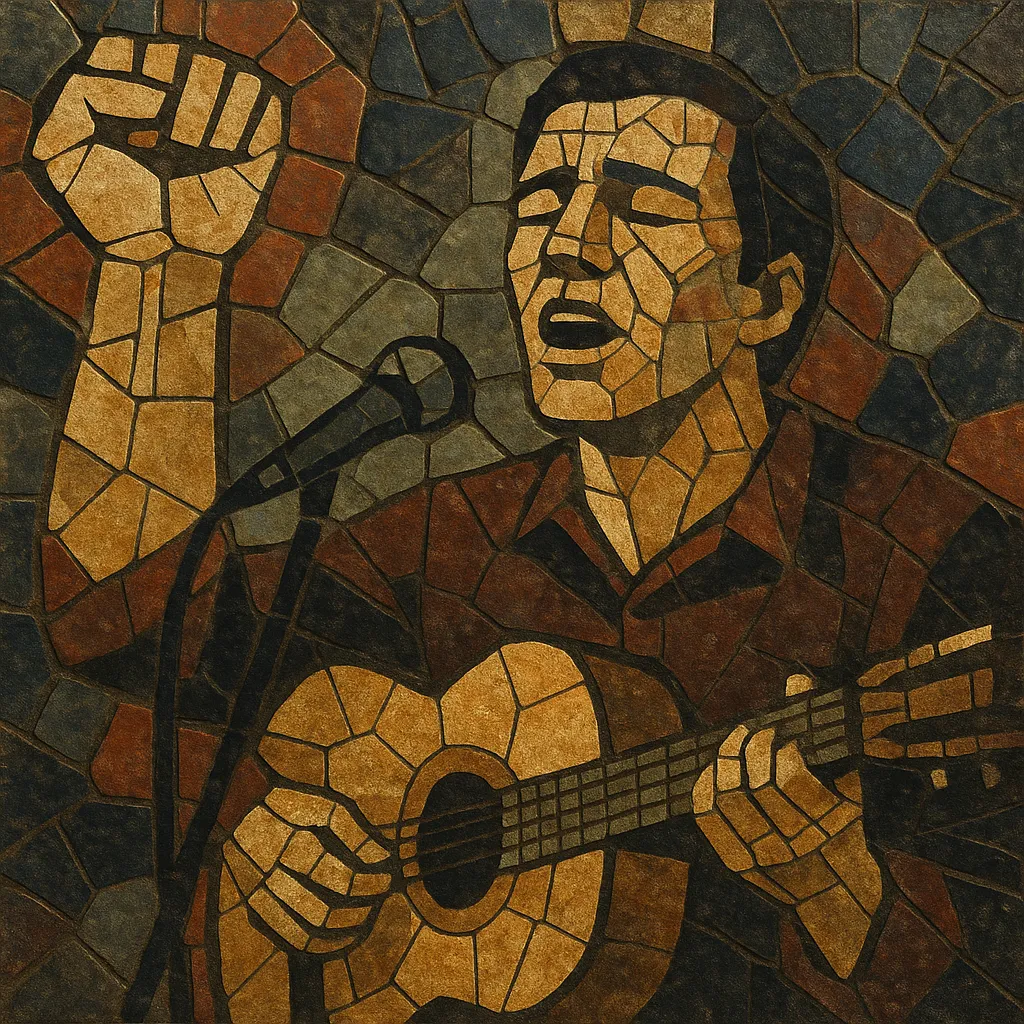Música de intervenção is the Portuguese tradition of explicitly political and socially engaged song that flourished under the Estado Novo dictatorship and around the Carnation Revolution of 1974.
Blending the intimacy of the singer‑songwriter with Portuguese folk and fado inflections, its lyrics prioritize clear messaging, allegory, and collective memory. Melodies tend to be direct and singable, often strophic and supported by acoustic guitar, small ensembles, or choral textures to encourage audience participation. The genre’s purpose is not only aesthetic but civic: to denounce oppression, narrate working‑class realities, and mobilize solidarity.
Música de intervenção emerged in Portugal in the 1960s as artists responded to the Estado Novo regime’s censorship, political repression, and colonial wars. Drawing on folk song forms and fado’s expressive depth, early practitioners adopted metaphor, symbolism, and coded language to evade bans and arrests. Performances frequently took place in student circles, cultural associations, and clandestine gatherings, where communal singing reinforced solidarity and memory.
The genre gained historic prominence during the Carnation Revolution of April 25, 1974. José Afonso’s “Grândola, Vila Morena,” broadcast as a clandestine signal to the insurgent Armed Forces Movement, became a defining anthem of freedom and collective dignity. In the months that followed, intervention songs flooded rallies, factory occupations, and community events, amplifying demands for democracy, workers’ rights, and decolonization.
With censorship dismantled, artists could record and tour more openly. While some musicians remained firmly rooted in acoustic folk idioms, others absorbed contemporary influences (folk‑rock instrumentation, chamber textures, and experimental arrangement). The movement documented struggles over land reform, labor, and social equality, while also commemorating the revolution’s ideals.
Although its mass profile waned amid changing musical markets in the late 1980s and 1990s, the genre’s practices—plainspoken lyrics, collective choruses, and moral urgency—shaped subsequent Portuguese music. Socially conscious indie folk, cantautores, and especially Portuguese hip hop inherited its ethos of testimony and critique. Intervention songs continue to be revived at commemorations and protests, preserving a living link between art and civic action.


